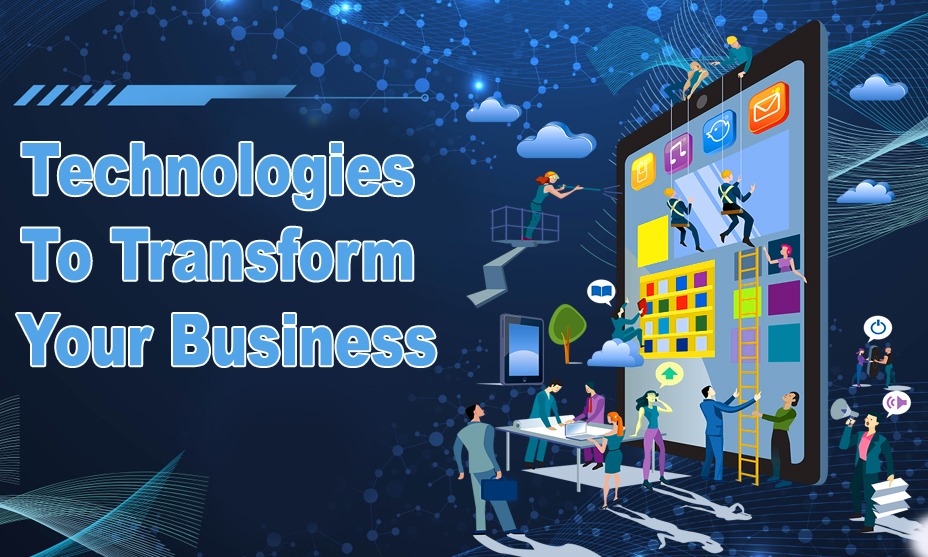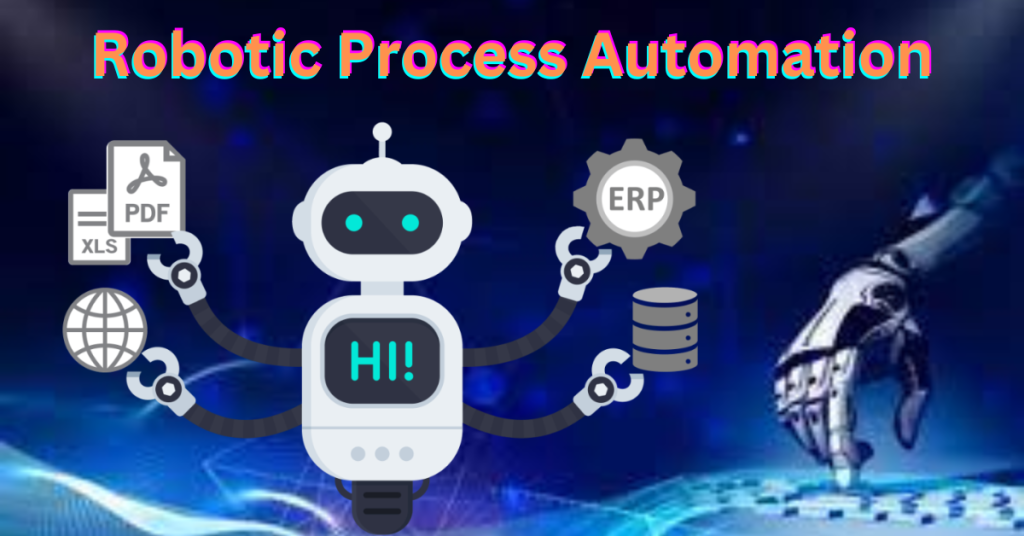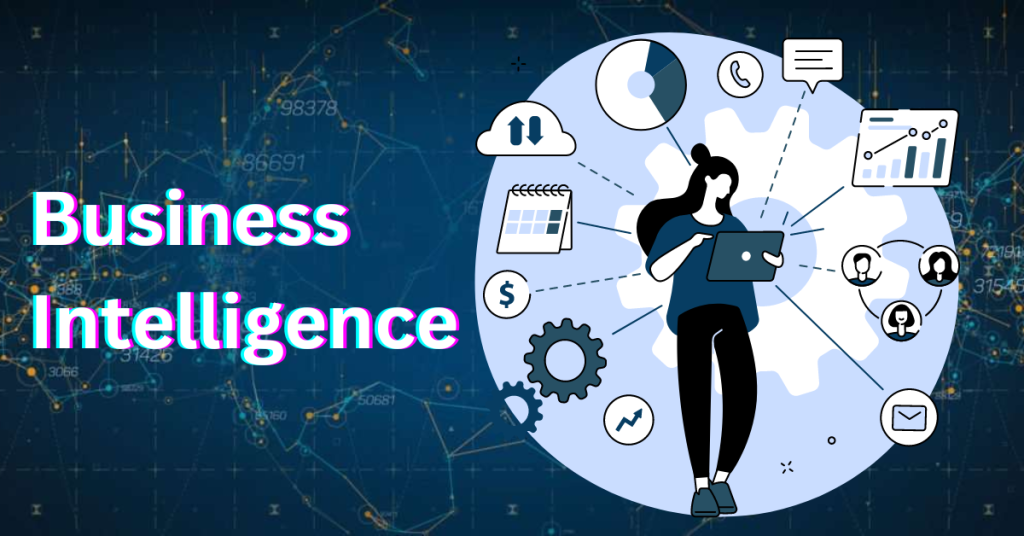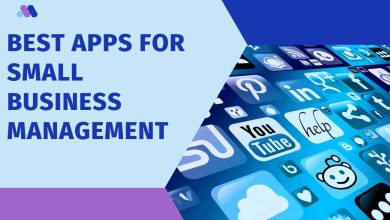Top 10 Technologies to Transform Your Business for Increased Productivity

Transformation is the process of changing something in order to improve it. When applied to business, this could mean modernizing existing processes or introducing new technologies that help increase productivity. Technology has transformed the business landscape in recent years, and there are a number of tools that can help your business be more productive.
From simple task-management apps to powerful cloud-based solutions, the right technology can make a big difference in how efficiently your team works. In this article, we’ll share some of our favorite productivity-transforming technologies and how you can use them to streamline your business operations.
What is Business Transformation?
Business transformation is a change management approach that can be described as any realignment, shift, or major alteration in business operations. The goal of this strategy is to modify processes, people, and systems (technology) so the company will more closely match its vision and long-term goals.
Top 10 Technologies for Business Transformation
Cloud Computing
Cloud computing is a flexible and cost-effective way to store, share, collaborate, and access data from anywhere in the world. This reduced reliance on our own hardware in favor of external servers has allowed businesses and individuals alike to keep their data secure while making it increasingly convenient to use.
Businesses can take advantage of on-demand scalability and quickly extend their reach by tapping into global pools of resources. The Cloud has created a world with limitless possibilities when it comes to storing and accessing large amounts of data.
Artificial Intelligence (AI)
Artificial Intelligence is an automated tool that can help businesses make better decisions, optimize processes, and automate mundane tasks. AI technologies such as machine learning and natural language processing can be used for the automation of analytics, predictive analysis, and forecasting. It enables enterprises to gain intelligence from data in order to better understand trends and make informed decisions
AI-driven technologies like chatbots and machine learning are becoming increasingly popular in customer service, giving businesses the ability to deliver personalized experiences without requiring human intervention. Businesses have plenty to gain from harnessing the power of AI through digital transformation programs.
Robotic Process Automation (RPA)

RPA eliminates manual labor by automating routine processes and standardizing data entry. This helps increase efficiency and accuracy while reducing costs associated with manual work. It also helps organizations create a more streamlined process flow by replacing software applications with a single integrated system that can be accessed remotely
This technology can automate mundane tasks such as data entry, freeing up human employees to pursue higher-value activities. It’s becoming increasingly clear that RPA offers businesses an opportunity to re-imagine their operations on a deeper level and launch themselves into the future of successful, transformative automation.
Internet of Things (IoT)
The Internet of Things (IoT) connects devices to the internet, allowing them to collect and exchange data in real-time. Businesses can quickly detect problems or opportunities across their entire network, enabling them to act faster than ever before with IoT.
Companies now have access to data and insights that were previously unattainable, allowing them to gain valuable insight into operations, customer preferences, supply chain issues and more. It gives organizations an unprecedented ability to assess performance, identify any previously unknown risks or opportunities, make important decisions faster, automate routine processes and better engage customers.
Data Analytics
Data analytics helps businesses make sense of the massive amounts of data they generate. Businesses can gain a deeper understanding of their customers and operations to drive innovation and improve decision-making by leveraging data-driven insights.
Companies can swiftly adapt their business strategy and make more informed decisions by leveraging the power of big data. Having access to precise and current insights enables executives to reach objectives faster and drive better outcomes for their organization. With this real-time intelligence at their disposal, they are in a much stronger position to achieve their strategic goals.
Virtual Reality (VR)
Virtual Reality (VR) offers a new way for businesses to engage with customers, enabling them to virtually experience products and services before making a purchase. It also helps employees become more immersed in their work environment, enhancing collaboration and productivity.
Virtual Reality helps employees, stakeholders, and collaborators to enjoy a realistic experience in an authentic environment. This will not only improve safety measures but significantly boost productivity as well.
Augmented Reality (AR)
Augmented Reality overlays digital information onto physical objects in the real world, allowing businesses to create immersive experiences for customers or provide remote support technicians with visual guidance.
It brings a multitude of advantages to the table, including greater user involvement and an unparalleled experience for your customers. It can also help boost sales, improve employee morale, increase brand recognition and set you apart from your competitors in the market.
Blockchain
Blockchain is a distributed ledger technology that makes it possible to securely store and transfer data without relying on a centralized authority. This helps businesses reduce costs, simplify processes, and enhance trust between parties.
It provides increased trust, security, transparency, and traceability of data shared across a business network. Companies can take advantage of a shared and immutable ledger that can only be accessed by members with permission by employing blockchain for business. This system not only increases security but also cuts costs by increasing efficiency.
Mobile Technology
Mobile technology is transforming how businesses operate, with its efficiency leading to greater productivity, cost savings and improved customer practices. It is offering employees the freedom to work from anywhere and anytime. Businesses can boost employee productivity and collaboration while providing better customer experiences.
This allows the improvement of communication among employees and departments, easier access to information, streamlined processes and a better experience for customers through online transactions.
Big Data
Big data is a collection of large datasets that can be analyzed to reveal patterns and insights that would otherwise be impossible to detect. Companies can also use it to gain valuable insight into customer habits and to better target their products and services.
This helps businesses gain clarity on their operations and make more informed decisions. Big Data can also provide a way for organizations to identify gaps in performance and put systems in place to improve those areas.
Business Intelligence

Business intelligence can be an invaluable tool for any business looking to improve decision-making. With data-driven insights, businesses are able to make more informed decisions that are rooted in hard facts, not just speculation.
Business intelligence allows a company to get the most out of its available data by creating a system of organization and analysis that leads to smarter choices and improved results. Through timely BI strategies, companies can spot trends earlier, chase opportunities with greater efficiency, find new ways to reduce costs, and ultimately move their businesses forward strategically with better long-term planning.
Conclusion
As we have discussed above the technology for business transformation. We can say these advancements are enabling businesses of all sizes to stay ahead of the competition and make data-driven decisions. From cloud computing and Artificial Intelligence to big data and analytics to blockchain, and augmented and virtual reality, the possibilities are only limited by our imagination. These innovative new technologies are revolutionizing the way we interact with and process data, enabling businesses to make more informed decisions in real-time.




